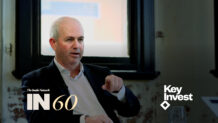Advice in the age of free trading
“If something is free, you are the product”
This quote attributed to sculptor Richard Serra in 1973 was well ahead of its time, but offers a unique insight into the evolution of financial markets in the 2020’s. Just last week we witnessed the initial public offering of Robinhood Markets, a platform made popular for ‘zero commission trades’.
The group became incredibly popular during 2020 with Americans armed with stimulus cheques flocking to the platform to gamble on stock markets amid the most volatile period in recent history. In fact, it became central to a war between the little guys, or retail investors, and big hedge funds shorting companies like AMC or GameStop.
Fortunately, the IPO process requires the disclosure of a great deal of information that would otherwise have been kept private. According to the prospectus, of Robinhood’s US$522 million quarterly revenue 81% was sourced from transaction-based payments; but aren’t they are free trading platform you ask?
Correct. This free trading is actually possible because the group is involved in what is now as Payment for Order Flow (PFOF). PFOF is the process through which market makers or large broking houses pay groups like Robinhood for placing their orders through them, essentially, they are paying for this trading data. What they do with this data is anyone’s guess, but investment banks and broking houses don’t pay for anything without finding a way to make money on it.
Following with the theme of low cost everything, I couldn’t help but overhear an add from a well-known pension fund during which the group was quoted as ‘stop losing money on fees’. As I highlighted in a previous article, the payment of fees is in no way losing money. These fees are used to employ people, and ultimately to provide a service, whether that be financial advice or investment management.
Everywhere else in the economy a lower fee equates to a lower level or quality of service, yet in finance it appears to be the opposite. Full services and actively managed strategies are compared with passive, low-cost and automated investment platforms, which couldn’t not be more different. That isn’t to say they aren’t appropriate for some people, there simply isn’t any comparison.
The financial advisery industry has been deliberately pressured away from delivering ‘cookie-cutter’ solutions for paying clients, with layers of legislation referring to the need to ensure all solutions are tailored and in the best interests of the end client.
I was therefore quite shocked to hear Dr Andrew Leigh’s comments when listening into the Royal Commission’s follow up hearing in Parliament this week. In his short period of question time, he asked the Financial Planning Association and Association of Financial Advisers, why a ‘cookie cutter’ approach wasn’t recommended to all clients. His comments suggested the lowest cost, product-based option, would meet the needs of most people and that the advice industry may well be ‘overcomplicating matters’.
Thankfully, the industry experts on the call did their best to explain the nuances and difficultly in understanding the unique circumstances of each client and why a simple out of the box product isn’t appropriate for everyone.











